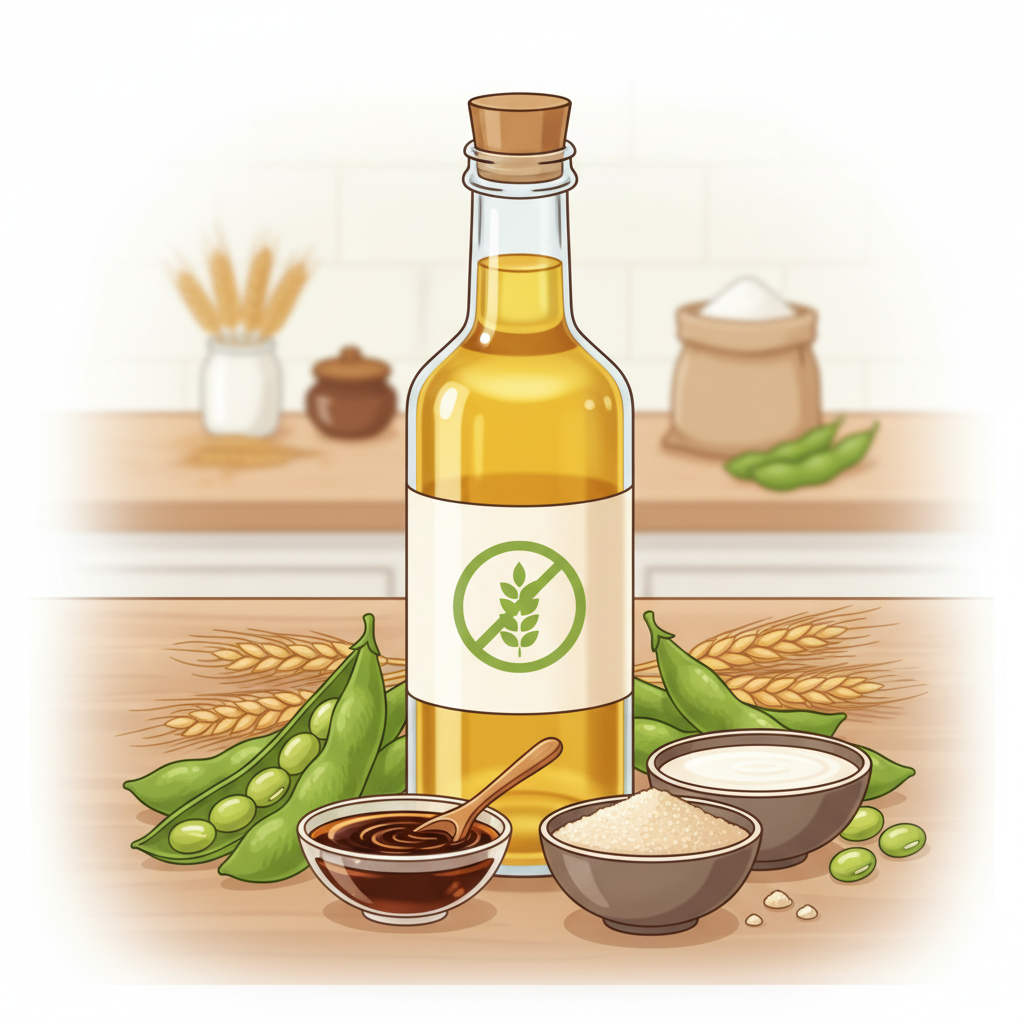
Soybean Oil vs Vegetable Oil: Understanding the Differences
TL;DR
- Soybean Oil: A type of vegetable oil derived specifically from soybeans. It is widely used for cooking and frying due to its high smoke point and neutral flavor.
- Vegetable Oil: Generally refers to a blend of various plant oils, with soybean oil being the most common component. It is often marketed as a versatile cooking oil.
- Health Considerations: Both oils contain beneficial fats, but soybean oil is rich in polyunsaturated fats, while vegetable oil's health benefits depend on its specific blend.
- Culinary Uses: Both oils are suitable for high-heat cooking, frying, and baking, but they may differ in flavor and nutritional profile.
When it comes to cooking oils, soybean oil and vegetable oil are two popular choices that often find their way into kitchens around the world. Despite their similarities, these oils have distinct characteristics, uses, and health implications. This article will explore the differences between soybean oil and vegetable oil, helping you make informed choices for your culinary needs.
Soybean oil is a type of vegetable oil extracted specifically from the seeds of the soybean plant (Glycine max). It is one of the most widely produced and consumed cooking oils globally, known for its light color and neutral flavor. The extraction process typically involves crushing the soybeans and using mechanical pressing or solvent extraction to obtain the oil.
Soybean oil is rich in polyunsaturated fats, particularly omega-3 and omega-6 fatty acids, which are essential for heart health. It contains about 15.6% saturated fat and is considered a healthier option compared to oils high in saturated fats.
Due to its high smoke point (approximately 450°F), soybean oil is ideal for frying, sautéing, and baking. Its neutral flavor allows it to be used in a variety of dishes without overpowering other ingredients.
Vegetable oil, in common usage, refers to a blend of various oils derived from plant sources. While it can include oils from seeds, nuts, and fruits, the most common ingredient in commercially available vegetable oil is soybean oil. This blending allows manufacturers to market a versatile cooking oil that is often less expensive than single-source oils.
The health benefits of vegetable oil depend on its specific composition. While it typically contains beneficial polyunsaturated fats, the exact nutritional profile can vary based on the blend of oils used. Generally, vegetable oils have a favorable balance of fats that can support heart health.
Like soybean oil, vegetable oil is suitable for high-heat cooking methods, making it a popular choice for frying and baking. Its mild flavor ensures that it doesn’t interfere with the taste of the dishes being prepared.
In summary, both soybean oil and vegetable oil are versatile cooking oils that serve similar purposes in the kitchen. Soybean oil is a pure oil with specific health benefits, while vegetable oil is a blend that offers flexibility and cost-effectiveness. Understanding these differences can help you choose the right oil for your cooking needs, ensuring delicious and healthy meals.
Soybean oil is a specific type of vegetable oil extracted from soybeans, while vegetable oil is a blend of various plant oils, often including soybean oil. This means soybean oil has a consistent nutritional profile, whereas vegetable oil's health benefits can vary depending on its blend.
Soybean oil is rich in polyunsaturated fats, including omega-3 and omega-6 fatty acids, making it a heart-healthy option. The health benefits of vegetable oil depend on its specific blend, so it can be less predictable in terms of nutritional value.
Both soybean oil and vegetable oil are suitable for high-heat cooking methods like frying and baking. Their neutral flavors make them versatile for a variety of dishes without overpowering other ingredients.
Soybean oil has a smoke point of approximately 450°F, which is ideal for frying. Vegetable oil typically has a similar smoke point, but it can vary based on the specific oils in the blend.

Can You Have Soybean Oil If Allergic to Soy?
TL;DR Individuals with a soy allergy may be concerned about consuming soybean oil. Highly refined soybean oil is generally considered safe for most people with soy allergies, as it contains negligible protein levels that trigger a...

Is Soybean Oil Soy? Understanding the Connection
TL;DR Soybean oil is indeed derived from soybeans, which are legumes. While soybean oil is commonly used in cooking and food production, it is important to note that highly refined soybean oil typically does not trigger allergies ...

Does Soybean Oil Have Gluten? Understanding Its Safety for a Gluten-Free Diet
TL;DR Soybean oil is gluten-free as it is derived from soybeans, which do not contain gluten. However, caution is advised with processed soy products, as they may contain gluten due to cross-contamination or added ingredients. Alw...

Does Soybean Oil Have Gluten? Understanding Its Safety for a Gluten-Free Diet
TL;DR Soybean oil is gluten-free as it is derived from soybeans, which do not contain gluten. However, caution is advised with processed soy products, as they may contain gluten due to cross-contamination or added ingredients. Alw...
Ready to source an ingredient?
Whether you’re struggling to find the perfect ingredient, racing against the clock, or simply don’t have the bandwidth to manage sourcing — we’ve got your back.
Get a Free Sourcing AuditSavings is BIG but the relationship value is MASSIVE! Glad we met when we did. Looking forward to building this partnership with you and David.
Yohan, here to say you’re one of my favorite suppliers. Aside from your high quality ingredients, you’re so great to work with. Thanks for all the help you’ve given us this year.
Working with Global Savors and Yohan has been very smooth when sourcing ingredients. They offer a great selection and and cost savings! Yohan has been awesome to work with and we look forward to continuing business together.






Global Savors is your trusted partner for seamless ingredient sourcing, offering end-to-end solutions that streamline procurement, simplify logistics, and elevate your supply chain efficiency.
View More News
© 2026 Copyrights by Global Savors. All Rights Reserved

